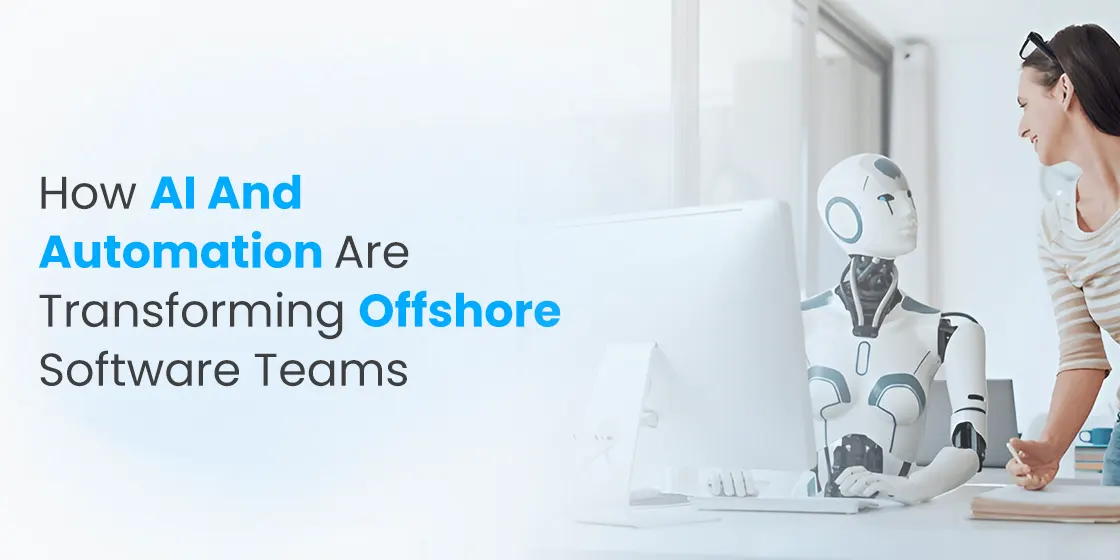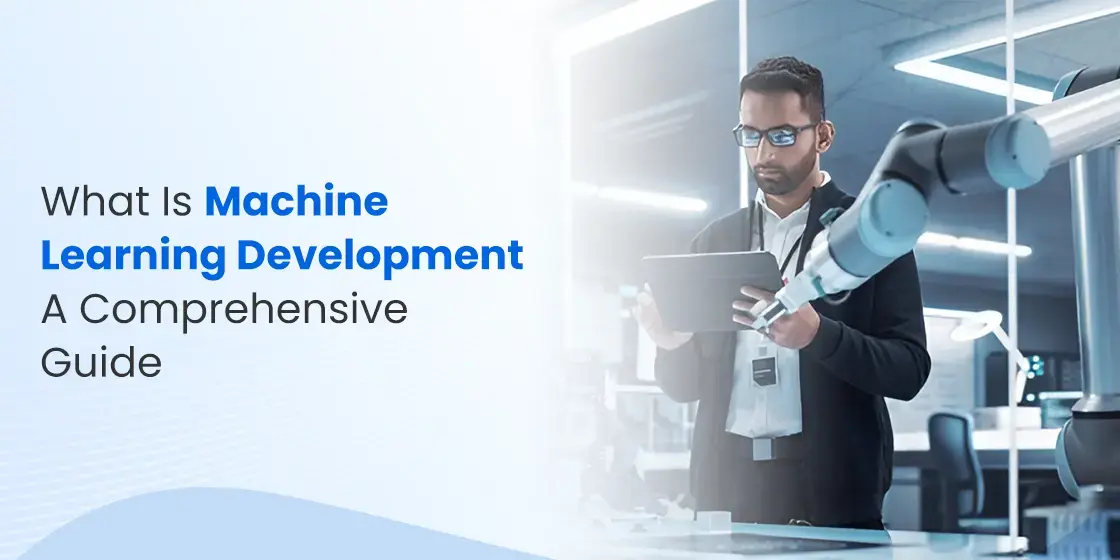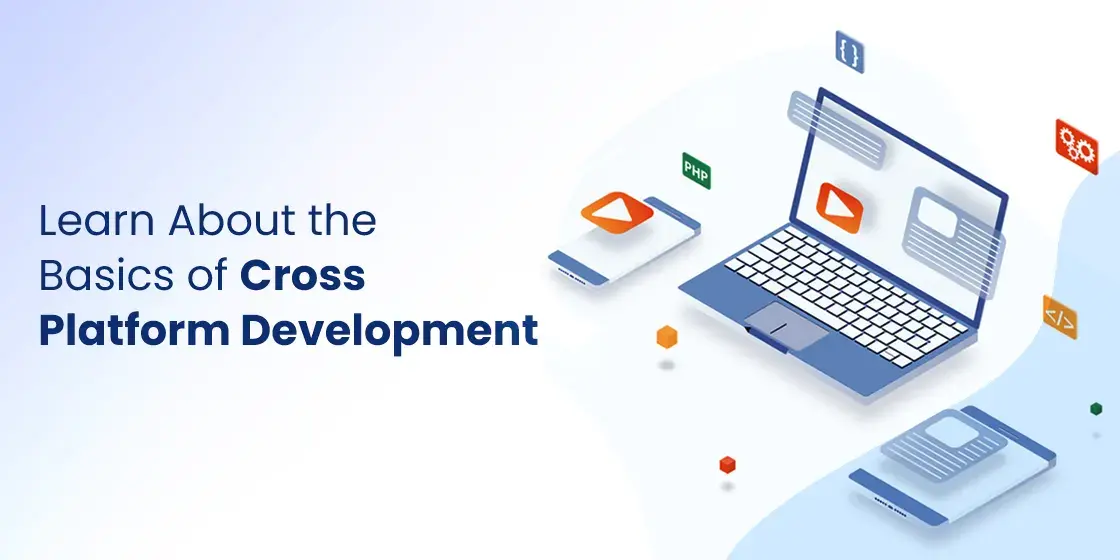How AI and Automation Are Transforming Offshore Software Teams
Offshore software development has always promised cost savings and access to global talent—but communication gaps, time zone challenges, and quality concerns have historically held teams back. Today, artificial intelligence and automation are fundamentally changing this equation, turning traditional pain points into competitive advantages. AI-powered offshore teams now deliver faster, collaborate more seamlessly, and maintain quality standards that rival in-house operations.
This transformation isn’t about replacing human developers. Instead, AI acts as an intelligent layer that enhances collaboration, automates repetitive tasks, and provides real-time insights that bridge geographical and cultural divides. Whether you’re managing an offshore team or considering offshore software development for the first time, understanding these AI-driven changes is critical to making informed decisions in the current landscape.
Why AI Is a Game-Changer for Offshore Software Teams
Offshore development has traditionally struggled with three core challenges: communication friction, quality assurance at scale, and knowledge management across time zones. AI directly addresses each of these obstacles in ways that weren’t possible even two years ago.
Consider the typical scenario: a U.S.-based product manager sends requirements at 5 PM EST, offshore developers in Eastern Europe or Asia receive them hours later, questions arise, and by the time responses arrive, another day has passed. AI-powered tools now provide instant clarification, automated documentation generation, and intelligent task routing that keeps development moving 24/7.
The role of AI in software development extends beyond simple automation. Modern AI systems understand context, learn from team patterns, and adapt to specific project requirements—making them particularly valuable in distributed environments where human oversight has natural limitations.
Key Insight: Organizations using AI-enhanced offshore teams report up to 40% reduction in miscommunication-related delays and a significant improvement in first-time code quality.
Key Areas Where AI Is Transforming Offshore Development
Intelligent Communication and Collaboration
AI-powered communication platforms now offer real-time language translation, sentiment analysis, and context-aware message prioritization. These aren’t simple translation tools—they understand technical terminology, project-specific jargon, and even cultural communication nuances.
Smart collaboration assistants can:
- Summarize lengthy email threads and Slack conversations
- Flag urgent issues requiring immediate attention
- Suggest optimal meeting times across global time zones
- Generate meeting summaries with automated action items
This technology is particularly transformative for teams working across different software development outsourcing models, where communication clarity directly impacts project success.
Automated Code Review and Quality Assurance
AI-driven code analysis tools have revolutionized quality control in offshore teams. These systems go far beyond traditional linting and syntax checking to provide semantic code review, security vulnerability detection, and architectural consistency validation—all in real-time.
Modern AI code reviewers can:
- Identify logic errors and potential bugs before human review
- Suggest performance optimizations based on code patterns
- Ensure adherence to team-specific coding standards
- Detect security vulnerabilities using pattern recognition trained on millions of code repositories
When combined with established AI software testing strategies, offshore teams can now maintain quality standards that match or exceed in-house development, addressing one of the biggest historical concerns about distributed development.
Project Management and Resource Optimization
AI-powered project management tools bring unprecedented visibility to offshore operations. These systems use predictive analytics and machine learning to optimize resource allocation, identify bottlenecks before they impact timelines, and provide accurate project forecasting.
Intelligent project management capabilities include:
- Automatic task breakdown and estimation based on historical data
- Smart resource allocation considering developer skills and availability
- Risk prediction identifying potential delays before they occur
- Workload balancing across time zones for continuous development
For organizations tracking software development KPIs, AI provides real-time dashboards with predictive insights that transform reactive management into proactive optimization.
Knowledge Transfer and Onboarding
One persistent challenge in offshore development has been knowledge continuity and efficient onboarding. AI-powered knowledge management systems now create self-updating documentation, intelligent code annotations, and contextual learning paths.
These systems automatically:
- Generate and maintain technical documentation from code and commits
- Create searchable knowledge bases from team communications
- Provide new team members with personalized onboarding paths
- Surface relevant documentation and past solutions when developers encounter similar problems
This is particularly valuable when working with IT outsourcing services where team composition may evolve throughout a project’s lifecycle.
How Different Industries Are Leveraging AI-Powered Offshore Teams
Organizations across various sectors are discovering unique applications for AI-enhanced offshore development teams, each tailored to specific industry challenges and regulatory requirements.
Healthcare and Life Sciences organizations partner with offshore teams to develop patient management systems, appointment scheduling platforms, and data processing solutions. These teams help healthcare providers streamline administrative workflows while maintaining strict compliance with data protection standards. Healthcare software development requires specialized knowledge of industry regulations and patient data handling protocols.
Financial Services companies leverage offshore AI teams for customer service automation, document processing, and risk assessment tools. These implementations focus on enhancing customer experience through intelligent chatbots and streamlined onboarding processes. Fintech technology trends show increasing adoption of AI-powered solutions for operational efficiency.
E-commerce and Retail businesses utilize offshore teams to build recommendation engines, inventory management systems, and customer analytics platforms. These solutions help businesses better understand purchasing patterns and optimize product placement strategies.
Manufacturing and Logistics companies work with offshore teams to develop predictive maintenance systems, supply chain optimization tools, and quality control automation. Logistics software development has evolved to incorporate AI-driven insights for better resource allocation and operational planning.
The key to success across all industries lies in selecting offshore partners who understand domain-specific requirements and can navigate industry-specific compliance frameworks effectively.
Top AI Tools Empowering Offshore Teams Today
The AI tooling landscape has matured significantly, with specialized solutions for distributed development:
Communication & Collaboration:
- GitHub Copilot Chat for technical discussions
- Slack’s AI-powered workflow automation
- Microsoft Teams Premium with intelligent meeting features
Code Quality & Development:
- Amazon CodeWhisperer for AI-assisted coding
- SonarQube with AI-enhanced code analysis
- Tabnine for context-aware code completion
Project Management:
- Linear with AI-powered project insights
- Jira with predictive analytics and automation
- ClickUp’s AI assistant for task management
Documentation & Knowledge:
- Notion AI for automated documentation
- Confluence’s AI capabilities for knowledge management
- Mintlify for intelligent API documentation
Pro Tip: The most successful offshore teams don’t try to implement every AI tool at once. Start with communication and code quality tools, measure impact, then gradually expand to other areas based on specific pain points.
Real-World Benefits of AI-Powered Offshore Teams
Organizations that have successfully integrated AI into their offshore operations report measurable improvements across multiple dimensions:
Accelerated Development Velocity happens when AI handles routine tasks like code reviews, test generation, and documentation. Developers focus on solving complex problems rather than repetitive work, leading to faster sprint completions and shorter time-to-market.
Enhanced Code Quality results from continuous AI-powered analysis that catches issues human reviewers might miss. Many teams report significant reductions in production bugs and security vulnerabilities after implementing AI code review systems.
Improved Communication Efficiency manifests in fewer misunderstandings and faster issue resolution. AI-powered summarization and translation tools help team members across different time zones stay synchronized without constant meetings.
Better Resource Utilization comes from intelligent task allocation and workload balancing. AI systems can optimize who works on what based on skills, availability, and current capacity—maximizing productivity across the entire team.
Reduced Operational Costs emerge not from cutting headcount but from eliminating waste. Less rework, fewer delays, and more efficient processes translate directly to better project economics, making the case for choosing the right offshore software development partner even more compelling.
Building a Business Case: Investment Planning for AI-Enhanced Offshore Development
Creating a compelling business case for AI-enhanced offshore development requires strategic planning and clear understanding of both investment requirements and expected outcomes.
Establishing Your Investment Framework
Begin by evaluating your organization’s current software development cost structure and identifying areas where AI integration could deliver the most significant impact. Focus on processes that are repetitive, time-consuming, or prone to human error.
Key Questions for Offshore Partner Evaluation
When assessing potential partners, ask about their experience with AI tool integration, team training programs, and change management processes. Understanding how they’ve helped other clients transition to AI-enhanced workflows provides insight into their capability maturity.
Timeline and Expectation Setting
Most organizations see initial benefits from AI integration within 60-90 days of implementation, with full optimization typically occurring over 6-12 months. Agile software development team structure becomes particularly important during this transition period to ensure smooth adoption.
Measuring Success Beyond Cost Savings
While cost reduction often drives initial interest, the most successful implementations focus on broader business outcomes: improved team satisfaction, faster project delivery, and enhanced code quality. Establish clear software development KPIs before beginning your AI integration journey.
Risk Mitigation Strategies
Consider starting with pilot projects to validate AI capabilities before full-scale implementation. This approach allows you to refine processes and build internal confidence while minimizing initial investment risk. IT outsourcing services providers with proven AI track records can guide you through this gradual adoption approach.
Challenges and Considerations When Implementing AI
While AI offers substantial benefits, successful implementation in offshore teams requires addressing specific challenges:
Initial Investment and Learning Curve can be significant. Teams need training on new tools, processes require adjustment, and there’s often a temporary productivity dip during transition. Budget for both the technology costs and the change management effort.
Data Privacy and Security Concerns are particularly acute when AI systems process proprietary code and sensitive business information. Ensure AI tools comply with your security requirements and understand where your data is stored and processed.
Over-Reliance on Automation poses risks when teams stop critically evaluating AI suggestions. AI should augment human judgment, not replace it. Maintain code review processes that include human oversight, especially for critical functionality.
Cultural and Adoption Resistance can emerge in both offshore and onshore team members. Some developers feel threatened by AI, while others resist changing established workflows. Address these concerns through transparent communication about how AI enhances rather than replaces human expertise.
Tool Integration Complexity increases as you add more AI solutions. Ensure new AI tools integrate smoothly with your existing agile software development team structure and don’t create more problems than they solve.
Projects With Full Trust
Want to outsource your software project to a reliable team? Get in touch with us today and build quality apps without any worry.
Outsource Project NowThe Future of AI in Offshore Software Development
The trajectory is clear: AI will become increasingly embedded in every aspect of offshore software development. Emerging trends point to even more sophisticated capabilities on the horizon.
Autonomous Development Agents are evolving beyond code completion to systems that can understand requirements, propose architectural solutions, and even implement entire features with minimal human guidance. These won’t replace developers but will shift their focus toward higher-level design and business logic.
Predictive Quality Assurance will move from reactive bug detection to proactive prevention. AI systems will predict where quality issues are likely to occur based on code patterns, team dynamics, and historical data—allowing teams to address problems before they manifest.
Hyper-Personalized Development Environments will adapt to individual developer preferences and patterns. AI will learn how each team member works best and optimize their tooling, notifications, and workflows accordingly.
Enhanced Cross-Cultural Intelligence will help AI systems better understand and bridge cultural communication differences, making offshore collaboration even more seamless than working with local teams.
Organizations exploring nearshore software outsourcing or other distributed development models should factor these AI capabilities into their strategic planning. The competitive advantage will increasingly belong to companies that effectively leverage AI-enhanced offshore teams.
Making AI-Powered Offshore Teams Work for Your Organization
Successfully implementing AI in offshore software teams requires a strategic approach. Start by identifying your biggest pain points—is it communication, code quality, project visibility, or something else? Choose AI tools that directly address these specific challenges rather than adopting technology for its own sake.
Invest in training and change management. The technology is only as valuable as your team’s ability to use it effectively. Create champions within both your onshore and offshore teams who can drive adoption and share best practices.
Measure impact rigorously. Track metrics before and after AI implementation to understand real ROI. Focus on outcomes like reduced cycle time, fewer defects, and improved team satisfaction rather than just tool usage statistics.
Partner with offshore providers who demonstrate AI maturity. Not all offshore development companies have embraced these technologies equally. Look for partners who can articulate clear AI strategies and show proven results from their implementation.
Frequently Asked Questions
| How does AI improve communication in offshore software teams? AI provides real-time language translation with technical context awareness, automated meeting summaries, intelligent message prioritization, and sentiment analysis. This eliminates many traditional communication barriers in distributed teams. |
| What AI tools are essential for offshore development teams? Start with GitHub Copilot for development assistance, Slack or Microsoft Teams with AI features for communication, and intelligent project management tools like Linear or Jira with predictive analytics. Add code quality tools like SonarQube as your implementation matures. |
| Does AI make offshore development more secure? Yes, when implemented properly. AI-powered code analysis can detect security vulnerabilities, identify compliance issues, and flag suspicious patterns faster than manual review. However, ensure your AI tools themselves meet your security and data privacy requirements. |
| Can small companies afford AI-enhanced offshore teams? Many AI development tools offer free or affordable tiers suitable for small teams. The bigger investment is often training and process adaptation rather than tool costs. Starting with one or two focused AI implementations can deliver ROI quickly enough to justify expansion. |
| Will AI replace offshore developers? No. AI augments developer capabilities rather than replacing them. It handles repetitive tasks, provides intelligent assistance, and improves quality—allowing developers to focus on complex problem-solving, architecture, and innovation where human creativity remains essential. |
Conclusion
AI and automation are fundamentally reshaping offshore software development from a cost-saving tactic into a strategic advantage. Teams that once struggled with communication delays, quality concerns, and management visibility now operate with efficiency that rivals or exceeds traditional in-house development.
The transformation touches every aspect of the development lifecycle—from how requirements are communicated and understood, to how code is written and reviewed, to how projects are managed and delivered. Organizations that embrace these AI-driven changes gain faster delivery, higher quality, and more effective collaboration across global teams.
The question is no longer whether to integrate AI into offshore operations, but how quickly and effectively you can do so. Companies that move decisively to implement AI-powered workflows and partner with technology-forward offshore teams will define the competitive landscape for the next decade.
Start by evaluating your current offshore operations, identifying specific pain points that AI can address, and building a phased implementation plan. The future of software development is distributed, intelligent, and more capable than ever before.
Empower your digital initiatives with BariTechSol, a premier custom software development company. Our skilled team tailors cutting-edge solutions to your unique needs. Elevate your tech experience and stay ahead in the digital realm. Partner with BaritechSol and code the success of your next big idea.


